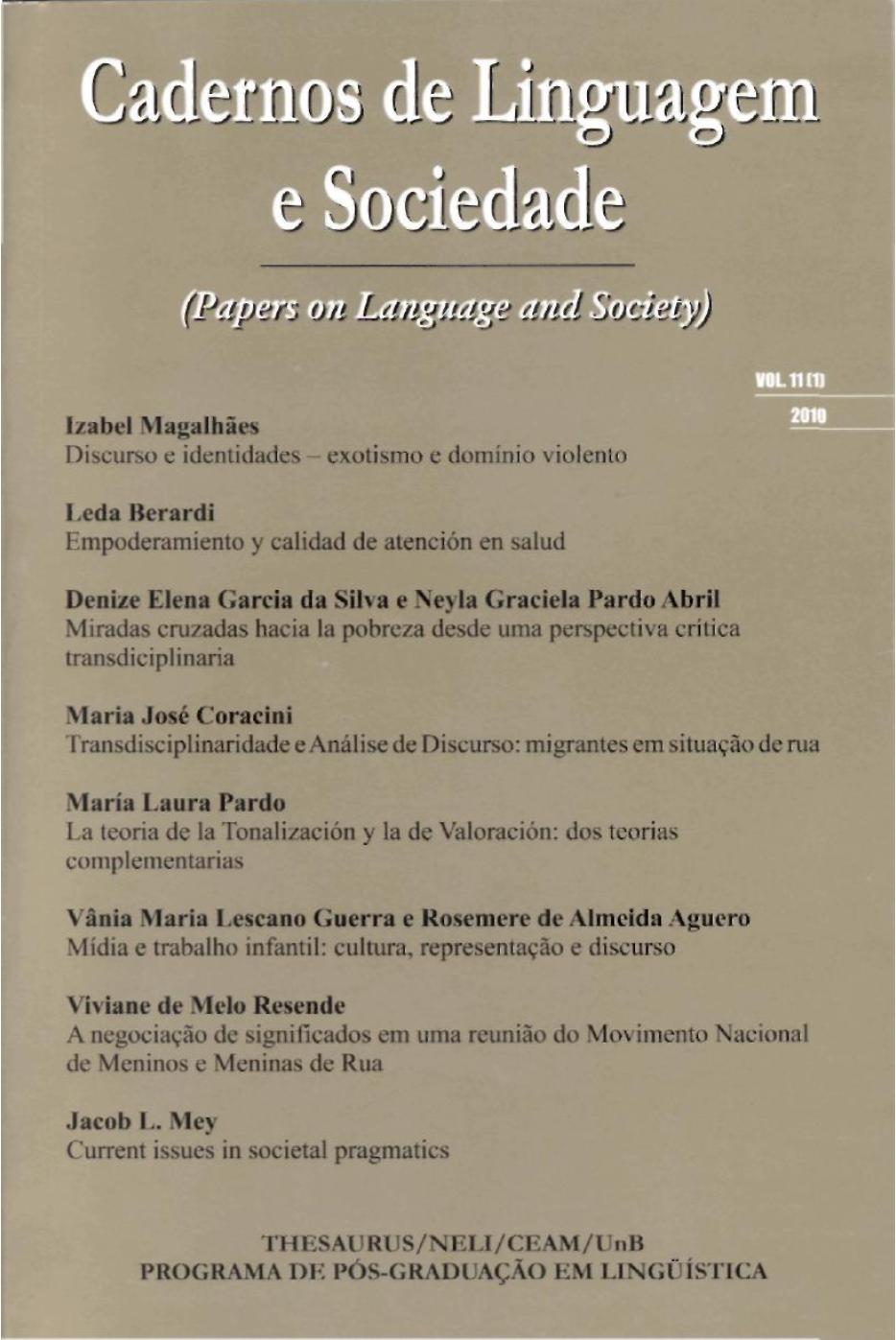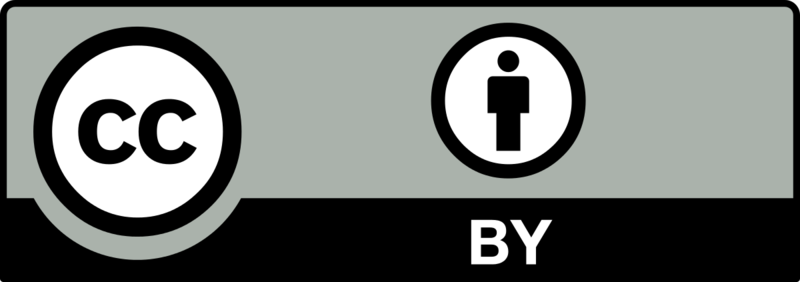Questões correntes na pragmática social
DOI:
https://doi.org/10.26512/les.v11i1.9762Keywords:
Societal pragmatics, language awareness, gender and language, endangered languages, ‘conscienticization’, ‘anticipatory’ pragmatics, ecology of language.Abstract
The essay argues for the need for a renewed consciousness of the human element in language use: a human ‘ecology’ of language, as one could call it. The label ‘societal’ is intended to capture the fact that the human user is central in all considerations of language policies, in efforts to save endangered languages and raise language awareness (‘conscienticização’), with regard to questions of language and gender, of language abuse, and so on. It is further argued that an emancipatory language use must incorporate an anticipatory aspect, by which present and foreseeable effects of language policies are placed within the actual life situations of the users. (Two actual cases, one from Brazil, the other from India, are discussed).
Downloads
References
CAVALCANTI, Marilda. 2001. ‘Collusion, resistance, and reflexivity: Indigenous teacher education in Brazil’. In: Heller & Martin-Jones, eds. pp. 317- 333.
Ethnologue, Languages of the World. 2007 (M. Paul Lewis, ed.). Dallas: SIL International. (17th ed.)
FAIRCLOUGH, Norman. 1992. Critical language awareness. Longman, London.
FRANK, Francine Wattman & Paula A. Treichler (eds). 1989. Language, gender, and professional writing: Theoretical approaches and guidelines for nonsexist usage. New York: The Modern Language Association of America, Commission on the Status of Women in the Profession.
FREIRE, Paulo. 2000. Pedagogy of the oppressed. (trad. Myra Bergman Ramos). New York: Continuum.
HAUGEN, Einar, 1972. ‘The ecology of language’. In: Dil, Anwar S. (ed.), The Ecology of Language: Essays by Einar Haugen. Stanford, Calif.: Stanford University Press. p.325-339.
Heller, Monica & Marilyn Martin-Jones, eds. 2001. Voices of authority: Education and linguistic difference. Westport, Conn.: Greenwood Press.
Heritage, John. 2007. Territories of Knowledge, Territories of Experience: (Not so) Empathic Moments in Interaction. Keynote speech at the XVth Symposium About Language and Society, Austin (SALSA), Austin, Tex., April 14, 2007.
Heritage, John & Sefi, Sue. 1992. Dilemmas of advice. In: Paul Drew & John Heritage, Talk at Work: Interaction in Institutional Settings. Cambridge University Press, Cambridge. pp. 359-417.
Iedema, Rick. 2009. Discourse research that intervenes in the quality and safety of care practices. Plenary Talk, 2d International Discourses and Cultural Practices Conference, Sydney, 7-9 July 2009.
Kamio, Akio. 1994. The theory of territory of information: The case of Japanese. Journal of Pragmatics 21(1): 67”“100.
Kamio, Akio. 1995. Territory of information in English and Japanese and psychological utterances. Journal of Pragmatics 24(3): 235”“264.
Kamio. Akio 1997. Theory of territory of information. John Benjamins, Amsterdam & Philadelphia. (= Pragmatics and Beyond, Vol. 48).
Ladefoged, Peter. 1992. ‘Another view of endangered languages’. Language 68(4): 809-811.
Levinson, Stephen C. 2000. Presumptive Meanings: The theory of generalized conversational implicature. Cambridge, Mass.: MIT Press.
Mey, Jacob L. 1976. Qualifcation, emancipatory language and pragmatic linguistics. In: Fred Karlsson, ed.. Papers from the Third Scandinavian Conference of Linguistics. Ã…bo/Turku: Academy of Finland. pp. 245-269.
Mey, Jacob L. 1979. Towards a critical theory of language (original in German: Zur kritischen Sprachtheorie). In: J.L.Mey, ed., Pragmalinguistics, theory and practice. Mouton, The Hague. pp. 411-434.
Mey, Jacob L. 1985. Whose language? A study in linguistic pragmatics. Amsterdam & Philadelphia: Benjamins. (Pragmatics and Beyond Companion Series, 3)
Mey, Jacob L. 1994. How to do good things with words: A social pragmatics for survival. Pragmatics 4(2): 239-263.
Mey, Jacob L. 2001. Pragmatics: An introduction. Oxford & Malden, Mass.: Blackwell. (Second ed.) [1993]
Mey, Jacob L. 2010. Anticipatory pragmatics. Paper read at the Third International Workshop on Emancipatory Pragmatics, Japan Women’s University Tokyo, March 24-27, 2009. (forthcoming in Sachiko Ide & Neal Norrick,
eds. Special Issue on Emancipatory Pragmatics. Journal of Pragmatics, vol. 42).
Norrick, Neal R. 2009. Contribution to Discussion, Third International Workshop on Emancipatory Pragmatics, Tokyo, March 24-27, 2009. Tokyo: Japan Women’s University.
Pragmatics and Society (Jacob L. Mey, Kerstin Fischer & Hartmut Haberland, eds.) Amsterdam & Philadelphia: John Benjamins. (Volume 1, 2010)
Sarangi, Srikant. 2009. The research-practice conundrum: Rethinking ‘translational research’ in professional discourse studies. Plenary Talk, 2d International Discourses and Cultural Practices Conference, Sydney, 7-9 July 2009.
Signorini, Inês. 2009. Emancipatory Linguistics. In: Jacob L. Mey, ed., Concise Encyclopedia of Pragmatics. Elsevier, Oxford. pp. 237-239. (Second Ed.)
Spender, Dale. 1980. Man made language. London: Routledge and Kegan Paul. Textor, Robert B. 2009. Practicing anticipatory anthropology with Austrian national leaders. Anthropology News, 50(1), January 2009. p. 21. (See also www.stanford.edu/~rbtextor)
Treichler, Paula A., Richard M. Frankel, Cheris Kramarae, Kathleen Zoppi & Howard B. Beckman. 1984. ‘Problems and Problems: Power relationships in a medical encounter’. In: Cheris Kramarae, Muriel Schulz & William M. O’Barr, eds., Language and power. Beverly Hills & London: Sage. pp. 62-88.
Treichler, Paula A. & Francine Wattman Frank. 1989. ‘Introduction: Scholarship. feminism, and language change’. In: Frank & Treichler 1989: 1-34.
van Dijk, Teun van. 1993. Principles of Critical Discourse Analysis. Discourse and Society 4(2): 249-283.



